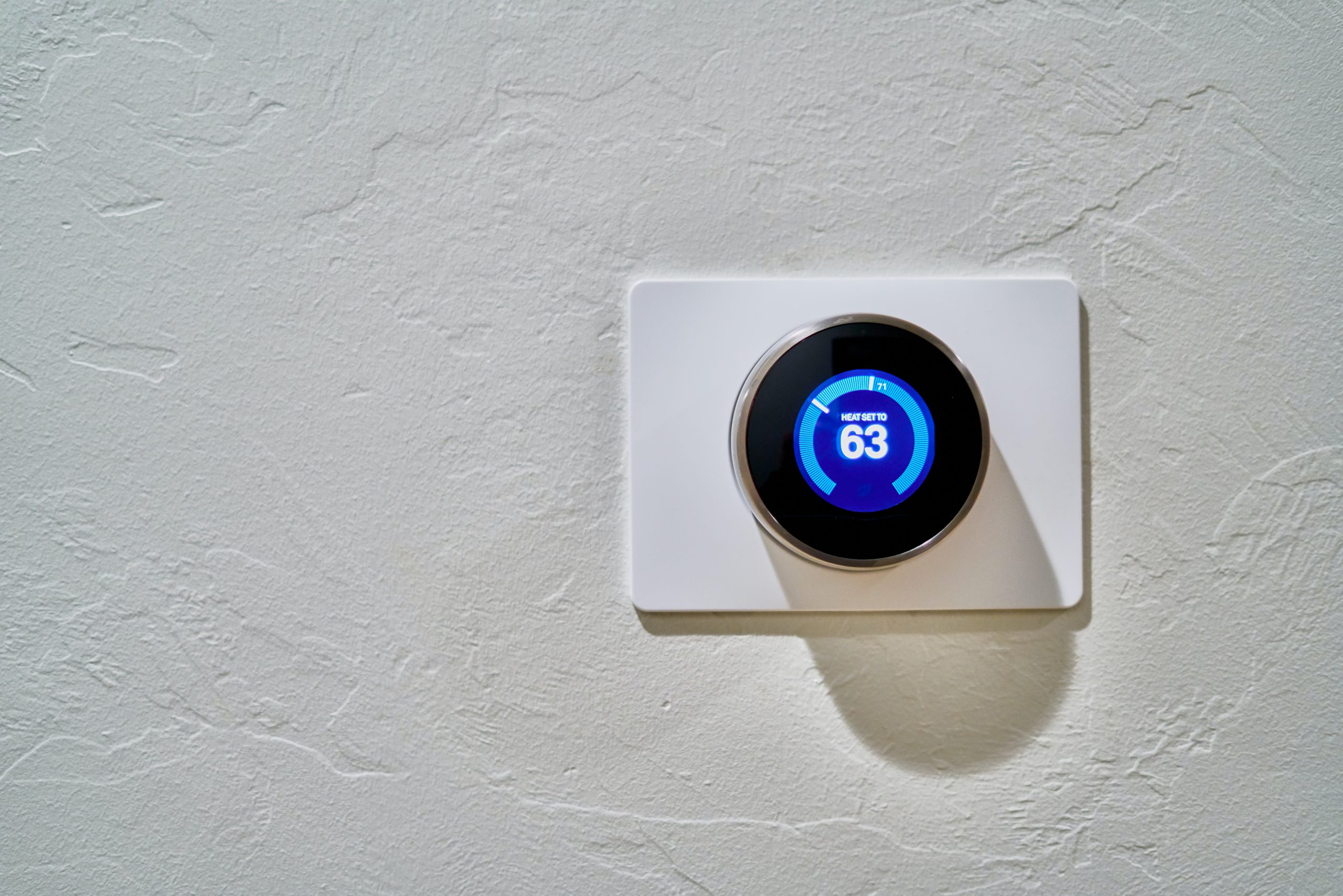Landlord thermostats are a style of thermostat that landlords can install in apartments to remove control of the apartment’s temperature from the hands of the tenants and place it firmly under the landlord’s power. While landlords may find this appealing for some reasons, many tenants are not so keen on losing this control. Although these devices are legal in most places, they can become a point of conflict and sour long-term relations.
Landlord Locked Thermostat
A thermostat lock or a thermostat lockbox allows the property manager or landlord to lock the thermostat controls in an apartment or other rental property. This physical lock prevents tenants from changing the settings regardless of the weather or how warm or cold they feel.
Some landlords decide to install these devices to prevent tenants from adjusting the temperature too widely, affecting energy bills and HVAC maintenance costs. These costs may be a concern if you charge tenants a flat rate for utilities or include it in the total rental cost.
However, because someone else controls the temperature through the locked thermostat, this may also mean that the temperature isn’t comfortable if you are a tenant. People’s comfort zone for temperature can vary widely. What some find comfortable, others may find too hot or cold.
Rental Thermostat
Some rental thermostats are smart thermostats and can turn off the heating or cooling when no one is home. This adaptability can help save energy and track data on energy usage. They are also eco-friendly. However, even though they are straightforward to install and compatible with most heating and cooling systems, smart thermostats are initially more expensive to purchase than traditional thermostats.
Many renters find smart home technology desirable in a rental property; however, that doesn’t necessarily mean they want someone else to control the temperature settings in the unit they are renting.
WiFi Thermostat for Rental
All smart thermostats are WiFi thermostats, but not all WiFi thermostats are smart thermostats. Users can control both from a mobile device through an app; however, a WiFi thermostat doesn’t learn from the usage it experiences.
WiFi thermostats work by connecting through the Internet and allowing remote access that people can control from smartphones or other electronic devices. You can only set a WiFi thermostat to perform specific actions based on a sensor reading. For example, when the temperature dips below 70 degrees, a WiFi thermostat can ping the controller, and you can login and change the settings if you want. However, it can’t change the settings on its own.
Alternatively, a smart thermostat can take programmed actions. For example, if you are out between 6:30 am and 5:30 pm, you can program the smart thermostat to let the temperature dip (or rise) a little and then turn on the heater or cooler so that the temperature gradually comes back to 70 degrees at 5:30.
Can a Landlord Control the Thermostat?
Rental laws vary from state to state, but most states have laws requiring landlords to provide heating (but not necessarily air conditioning).
Even in the few states that don’t specifically require landlords to provide heating, they must provide a way for you as a tenant to heat the premises under the implied warranty of habitability, which requires landlords to maintain the premises in a livable condition.
As with much of the Internet of Things, few state laws have caught up with the technology of landlord thermostats. As a landlord, that means there are few if any prohibitions on installing landlord-run thermostats in their rentals.
Nonetheless, just because you as a landlord can install a locked landlord thermostat doesn’t mean you should.
One thing to consider is the initial expense of such thermostats. Beyond that, though, taking such a basic control out of the hands of your tenants can cause conflict and unhappy tenants (who may decide to leave). Though tenants may change temperatures more than landlords prefer, removing control from tenants could create a bone of contention.
While there are some benefits to landlord thermostats for you as the landlord, keeping good relations with a reliable tenant may be worth more than controlling the temperatures in individual apartments.










